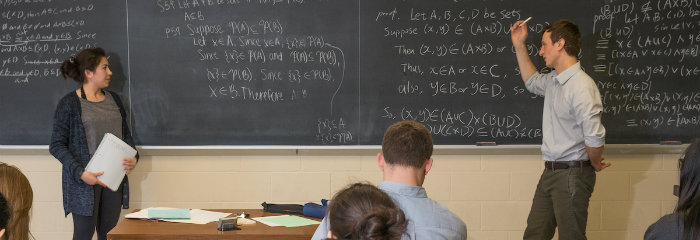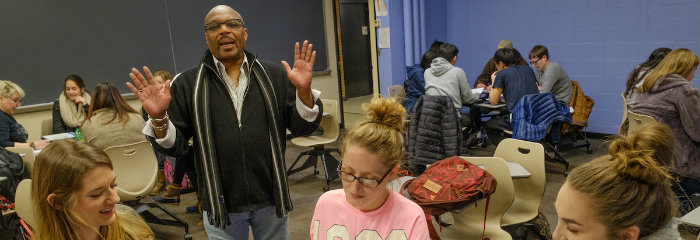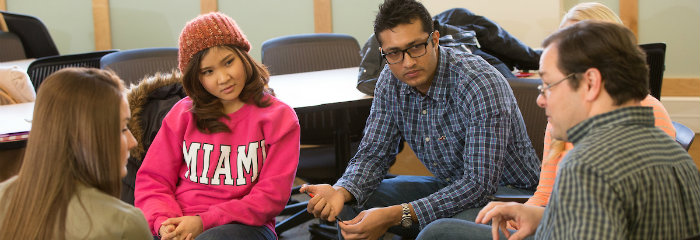
Accommodating Students with Disabilities



Overview
Student Disability Services coordinates service and accommodations for students with physical, psychiatric, medical, neurological, autism spectrum disorders, AD(H)D and learning disabilities. To register for services, students must self-disclose their need for accommodations and provide verifying documentation. After eligibility for services is determined, SDS works with the student, faculty and university departments to arrange a wide of array of accommodations such as testing accommodations, assistive technology, housing accommodations and alternate format textbooks.
Procedures for Requesting Accommodations
Once students complete SDS registration they are eligible to begin using accommodations. Each semester and for every class, students must request a Faculty Notification Letter (FNL) via their SAM: Students Accessing Miami Portal before accommodations can begin. Accommodations are not retroactive and begin from the date of formal notification. The FNL is sent to faculty via your Miami email account and outlines recommended accommodations that will allow the student to fully access the course.
Examples of accommodations include, but are not limited to, extended-time on exams, distraction-reduced testing, advance registration, housing accommodations, sign language interpreters and CART Services, note-taking resources, adaptive technology and print materials in alternative formats to name a few. Students may also access technological resources. Currently, available hardware includes LiveScribe pens, large monitors, scanners, CCTV, tactile image enhancer, audio recorder, speech calculator, and Braille printer. Currently, available software includes Dragon Naturally Speaking, Duxbury Braille, JAWS, ZoomText, Read & Write, and Kurzweil.
In general, faculty are not required to fundamentally alter a course by eliminating essential requirements of a course, i.e., those outcomes (including skills, knowledge, and attitudes) all students must demonstrate. It may be appropriate, at times, for the instructor, student, and SDS to engage in a dialogue about accommodations, particularly if the instructor believes the recommended accommodations are a fundamental alteration of the course.
Students are expected to meet with their professors to discuss accommodations. However, if you receive a letter but the student does not approach you, we recommend reaching out to the student and documenting this communication in your records. Both the student and the faculty share a responsibility to engage in necessary accommodation discussions, through the assistance of the SDS office, and to cooperate for development of a positive and reasonable accommodation experience
To recap, students should do the following the request accommodations:
- Complete SDS Registration.
- Request Faculty Notification Letters via their SAM: Students Accessing Miami Portal.
- Self-advocate and communicate with faculty regarding accommodations.
Providing Accessible Course Materials for Students
Miami has a responsibility to provide students with disabilities equally effective communication of curricular materials (e.g., textbooks, workbooks, articles, compilations, presentations, collaborative assignments, videos, and images or graphical materials). Eligible students may have course material converted to alternate formats, provided the student registers with SDS, requests accommodations, and participates in a dialogue with SDS staff in identifying what will be equally effective communication.
As faculty, it is important to create and adopt content that is accessible. This benefits all students enrolled in the course and minimizes the need for extensive remediation if a student that requires alternate formats enrolls in the course. Resources are available at the university to assist faculty in providing accessible course content, and faculty may contact SDS for more information or to make sure that the classroom, lab or other context in which the accommodation is to be provided is available and understood. For more information on creating accessible courses please visit AccessMU.
Pre-Term Consultation for Students with Vision and Hearing Disabilities
SDS staff provides pre-term consultation for all students who have a visual or hearing disability for which assistive technologies or the provision of curricular materials in alternate formats is necessary. If you have such a student enrolled in your class for the upcoming semester, you will be contacted by SDS at the close of advanced registration, or as soon as possible thereafter, to schedule a pre-term consultation. The purpose of the pre-term consultation is to review all course content to ensure it will be accessible for the student during the upcoming semester. Please reply to consultation requests in a prompt manner to allow time for planning.

